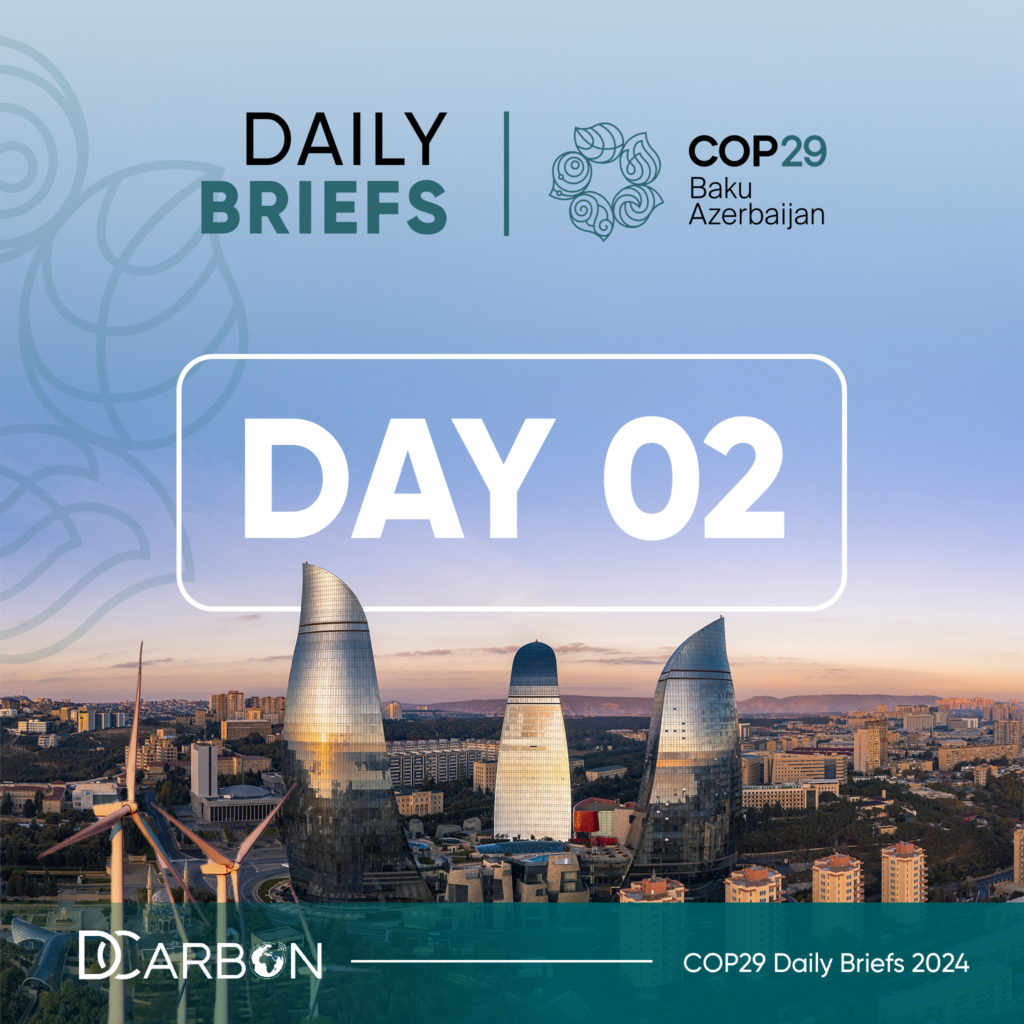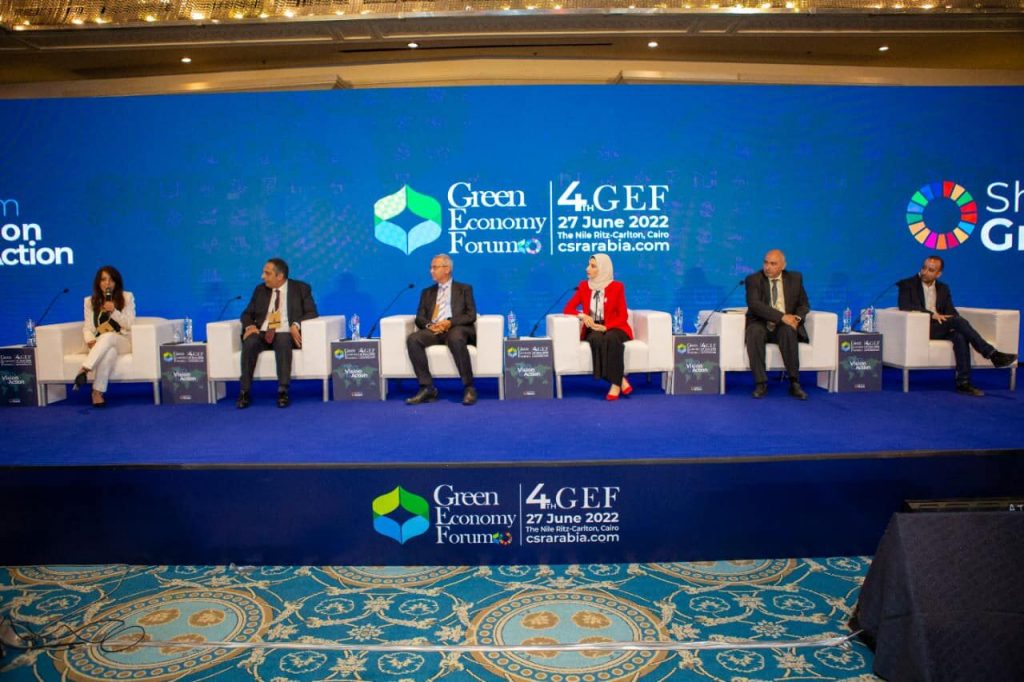Blue Zone
Urgent Call for Bold Climate Action: Warning of Economic Crisis and Inflation Surge
Simon Stiell, Executive Secretary of UN Climate Change, called for countries to step up climate action, during his opening speech at the World Leaders Climate Action Summit of COP 29, on Tuesday. He warned aganist worsening climate impacts will put “inflation on steroids.” Stiell stressed that the climate crisis is has become a pressing economic challenge, with its impact in reducing global GDP by 5% in many countries. Stiell stated that the crisis is a cost-of-living disaster, with escalating climate-related disruptions, raising households’ and businesses’ costs worldwide. Stiell’s message was a direct appeal to world leaders to prioritize climate action and climate finance, warning against taking prompt actions that could further lead to economic instability. Stiell implied that there is a sliver lining within the crisis through embracing clean, affordable energy solutions that could lay the foundation for long-term economic growth, job creation, as well as healthier, and cleaner cities. Stiell urged leaders to demand a strong global climate finance goal at COP29 and push negotiators to find common ground, stressing that climate action is not an optional choice but rather an essential one for global prosperity and stability. With billions of people depending on their governments for action, setting ambitious national climate targets and engaging in the clean energy boom has become more critical than ever.
Tracking Global Progress Transparently: The First Biennial Transparency Reports
Transparency is key to building trust and driving ambitious climate action for it will assist in tracking successes, identifying areas for improvement, and staying on the path of limiting global warming to 1.5°C. Under the Paris Agreement, the Enhanced Transparency Framework (ETF) requires countries to submit their first Biennial Transparency Reports (BTRs) by the end of 2024, followed by biannual submissions. These reports serve as the primary mechanism for Parties to demonstrate progress in implementing the Paris Agreement including information on national inventory reports (NIR), progress towards NDCs, policies and measure climate change impacts and adaptation. This is in addition to demonstrating the levels of financial, technological development, transfer and capacity-building support, capacity-building needs and areas of improvement. The ETF is already active, with various parties that started submitting their BTRs, and technical expert reviews that were already underway. Many countries are persistent in meeting the deadline for the first BTR submission on December 31st, 2024. Providing support for these efforts is available in all stages. With the UN Climate Change collaborating with the COP29 Presidency and support to ensure that all countries can effectively participate in the ETF. The COP29 Presidency launched the Baku Global Climate Transparency Platform (BTP) to facilitate BTR submissions in 2024 and offer targeted support for the ETF’s full implementation, while meeting that objective.
A high-level event held on the second day, celebrated and recognized the efforts of the first nine countries: (Andorra, Guyana, Panama, Japan, Spain, Türkiye, Kazakhstan, the Netherlands, and Singapore) that have already submitted their first BTRs. This event successfully generated strong momentum for the timely submission of BTRs and stressed the importance of universal participation in the ETF. It also demonstrated the operational status of the ETF, highlighting its active role in tracking global climate progress reiterating on the importance of climate transparency for all stakeholders involved in implementing the ETF, including cities, regions, and corporations.
COP29 Sets International Standards for Carbon Market
Yalchin Rafiyev, COP29 Lead Negotiator, inaugurated a press conference held on the second day of COP29, stressing on the conference’s significance as a global milestone for advancing multilateral climate goals. He stressed the importance of the issues discussed and embarked on the successful adoption of the agenda on Day 1. Rafiyev announced significant progress on Article 6, which outlines standards for international carbon crediting. The standards reached with early consensus amongst the various parties are expected to drive impactful resources towards developing nations, which will potentially save up to $250B annually.
Simon Stiell, UN Climate Change Executive Secretary, reiterated on the importance of channeling climate investments where they are most needed, adding that developing countries encounter escalating economic and environmental risks that emerge from the climate crisis. He highlighted Article 6’s newly agreed standards for a centralized carbon market, poised to help countries accelerate emissions reductions cost-effectively.
Nigar Arpadarai, Climate Change High-Level Champion for COP29, said that she is committed to engaging non-state actors through a newly launched business, investment, and philanthropy platform within COP29’s Blue Zone, which hosts over 1,000 participants. This initiative aligns with her focus on the “climate proofing” of small and medium-sized enterprises (SMEs), a key effort supported by over 35 collaborators reaching 65 million SMEs worldwide. Arpadarai stressed the importance of involving the private sector to harness climate action opportunities.
Ministerial Dialogue on Scaling Renewable Investment
The Ministerial Dialogue on scaling up investment to triple renewable energy and double energy efficiency by 2030 kicked off during COP29. The dialogue brought together decision-makers, international organizations, and financial institutions to review progress and discuss strategies for achieving these ambitious goals. Key figures, including Minister of Energy Parviz Shahbazov, UAE Assistant Minister of Foreign Affairs Abdulla Balalaa, EU Commissioner Wopke Hoekstra, IEA Executive Director Fatih Birol, and IRENA Director-General Francesco La Camera delivered the opening remarks.
Minister Shahbazov reiterated on the importance of financial backing and collaborative initiatives such as the Green Energy Zones and Corridors Pledge, the Global Energy Storage and Grids Pledge, and the Hydrogen Declaration. He demostrated Azerbaijan’s ambitious renewable energy goals, including the development of 2,250 MW of solar and wind power plants by 2030, increasing the share of renewable energy in its capacity to 35.5%. He also highlighted the plans for establishing regional green energy corridors connecting Azerbaijan to Europe and Central Asia. The event included panel discussions on last year’s progress and strategies to bridge the financial gap in renewable energy investments. Representatives from more than 40 countries and organizations participated in the event that focused on accelerating the global transition to green energy.
Developing Countries Push for Stronger Climate Finance Goal
In mid-October, the co-chairs of negotiations for a post-2025 climate finance goal (NCQG) presented a nine-page document as a starting point for COP29 discussions. The Group of 77 (G-77), which is the largest intergovernmental organization of developing countries in the UN, along with China, rejected the document, nonetheless, asserting the need for a fresh approach. These countries are currently united in their perspective, demanding a more prominent role in negotiations and proposing a $1.3 trillion annual climate finance goal, with sub-targets for mitigation, adaptation, and loss and damage. They stressed that this goal should include both contributions from developed nations and mobilized private capital, rejecting the idea of a broader investment goal favored by donor countries. The G-77 opposes expanding the contributor base to include wealthier emerging economies like Saudi Arabia and China. While, developed countries are cautious towards committing over $100B annually on the condition that the contributor base is expanded, including a wider investment goal. They also seek to exclude fossil fuel projects and human rights-abusive activities from receiving climate finance—an issue that divides developing nations.
The informal discussions regarding the NCQG are progressing, and a revised text will be likely drafted and released, based on these ongoing discussions anf reflecting the evolving negotiations and stands from developed and developing countries.
Caught Between Conflict and Climate Change: A Growing Crisis of Displacement
The UNHCR and 13 partner organizations have released a report highlighting the connection between climate change, conflict, and forced displacement. While conflict remains the primary cause of displacement, climate change is worsening the situation for millions. Currently, 90 million displaced persons live in regions that are highly vulnerable to climate hazards such as floods and droughts. Displaced populations, including those in countries such as Ethiopia, Haiti, and Myanmar, face challenges including insecure housing and limited access to essential services, which makes it harder to adapt to climate impacts. The Report revealed that 220M people were displaced due to extreme weather, in the past decade, with more countries expected to face such hazards in the coming years. Vulnerable groups, such as women, girls, and people with disabilities, are particularly at risk. Climate change continues to aggravate the challenges of displacement, calling for urgent actions to address both conflict and climate resilience in these critical times.
Green Zone
COP29 Green Zone Highlights Net-Zero Partnerships and Practical Climate Actions for a Sustainable Future
The Green Zone’s opening day featured the event “Towards Net-Zero Carbon Emissions: COP29 Partnerships for a Sustainable Future,” organized by the COP29 Azerbaijan Operating Company. COP29 Spokesperson Ayan Najaf and Senior Climate Change Expert Marina Olshanskaya, were amongst the panelists, who stressed tangible solutions including waste management, renewable energy, and carbon reduction efforts. Najaf highlighted Azerbaijan’s role in directing resources toward innovative climate solutions for developing nations, a sentiment echoed by COP29 President Mukhtar Babayev, who reiterated on the importance of global collaboration in reaching climate targets.
Corporate Sustainability and Climate Action Panel Stresses Private Sector’s Role in COP29 Green Zone
Corporate sustainability was at the heart of COP29’s Green Zone that dedicated a panel for this topic during COP29 Azerbaijan Operating Company and Azerbaijan International Bank, the conference’s Principal Banking Partner. “Corporate Sustainability and Climate Action,” highlighted the important role of private sector efforts to combat climate change and achieve net-zero carbon targets.
Samir Mammadov of the United Nations Global Compact, Taleh Tahirli of ABB, Kaushik Burman of Spiro, Tahir Gozel of Qarabag FK, and Maria Peres from Deloitte’s GreenSpace Tech Hub were amongst the speakers. The panel explored topics such as low-carbon transitions, sustainable supply chains, and the latest in green technology, demonstrating how businesses can adopt sustainability as a core operational strategy.
The event drew public interest, with various stakeholders reflecting on subtopics in the Green Zone, such as young women’s roles in tackling climate injustice, youth leadership in biodiversity efforts, and local community involvement in climate resilience. Each of these events provided insights that tackled the collective role of corporate and grassroots initiatives in driving meaningful climate action.
ExxonMobil CEO Darren Woods Stresses Carbon Solutions Amid Climate and Political Pressures
ExxonMobil’s CEO Darren Woods built on his initial engagement from last year’s COP28 in Dubai during COP29. Despite ExxonMobil’s history in countering climate action, Woods has now positioned the company as a problem solver for the global energy transition. In Baku, Woods emphasized ExxonMobil’s commitment to climate-oriented initiatives, including carbon accounting methods, even as the company continues to produce oil at high levels.
During COP29, Woods urged the incoming U.S. administration to support the Paris Agreement, stressing that ExxonMobil faces challenges from unpredictable political cycles that can impact its investments and profitability. Woods stated that ExxonMobil is exploring markets for its low-carbon solutions beyond the U.S., positioning the company as flexible to both domestic and international demand shifts in climate policies. The full interview with Woods, where he demonstrates ExxonMobil’s evolving climate strategies and future prospects, will be aired on Bloomberg’s Zero podcast on Thursday, November 14th 2024.
French-Led Group Recommends Making Coal Investment Greener Through Transition Finance
At COP29, a French-backed initiative, the Coal Transition Commission, outlined strategies to make coal investments more environmentally friendly by easing criteria for “transition finance.” The commission aims to speed up coal plant closures, especially in developing countries, and urges private investors to take on a bigger role in funding the prompt withdrawal of coal infrastructure.
According to the commission’s report, transition finance should support activities that reduce emissions from existing coal plants, even if they were not fully “green” according to the modern standards. Key recommendations include integrating blended finance, sustainability-linked loans, and carbon credits to reduce the financial risks for private investors, with Singapore’s Monetary Authority already piloting some of these methods.
Singapore’s Ambassador for Climate Action, Ravi Menon, stressed that dissociating from coal is less effective than investing in an orderly phaseout. French Energy Minister Agnès Pannier-Runacher advocated for innovative financial structures to mobilize billions in necessary funding. Mark Carney, UN Special Envoy on Climate Action and Finance, supported the report’s call for broader definitions of transition finance, urging swift implementation given the urgent climate crisis.
Some environmental groups, such as Reclaim Finance, criticized the proposal to use carbon credits and questioned the viability of technologies like carbon capture. Despite of this criticism, the commission maintains immediate and flexible solutions that are critical to reducing coal-related emissions globally.
SOCAR and Italgas Forge Strategic Partnership at COP29
A significant cooperation agreement was signed today between SOCAR (State Oil Company of the Republic of Azerbaijan) and the Italian energy company Italgas, at the COP29 climate summit in Baku. The agreement was formalized by Elshad Nasirov, Vice President of SOCAR, and Paolo Gallo, CEO of Italgas, and aims at enhancing collaboration in the fields of innovation, efficiency, and sustainability within gas distribution systems.
The partnership highlights both companies’ commitment to advancing greener and more sustainable energy solutions. As part of the agreement, SOCAR and Italgas plan to integrate cutting-edge technologies and improve operational efficiency to further strengthen their global role and efforts in reducing carbon emissions and promoting energy sustainability. This agreement was signed during the high-level events of COP29, reinforcing the summit’s focus on fostering cross-sector collaborations that drive impactful climate solutions.
References:
UNFCCC-News-Celebrating Climate Transparency
UNFCCC-News-Transparent Climate Reporting is Crucial for Bold Climate Action
UNFCCC-Biennial Transparency Reports
UNFCCC-News-COP29 Agrees International Carbon Market Standards
UNHCR-News-UNHCR report reveals climate change is a growing threat to people already fleeing war
https://cop29.az/en/media-hub/news/corporate-sustainability-panel-held-at-cop29-green-zone
https://www.bloomberg.com/news/newsletters/2024-11-12/cop29-a-second-date-with-the-exxon-ceo
https://azertag.az/en/xeber/socar__quotitalgas_quot_sign_cooperation_agreement_at_cop29-3276332





